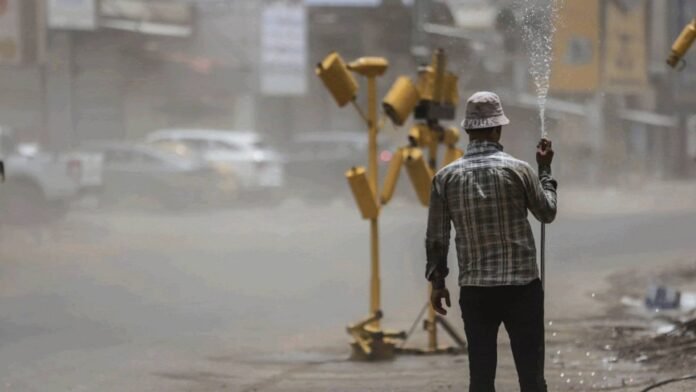The Iraq heatwave continues to grip the nation, sending temperatures soaring past 51°C in several regions. On Monday, Baghdad and southern provinces endured extreme heat as residents scrambled to stay cool.
In the capital’s streets, people gathered around mist fans outside restaurants and shops. However, others poured cold water on their faces to cope with the intense heat. Drivers even pulled over to prevent their engines from overheating.
The national weather service confirmed that Baghdad recorded 51°C. Southeastern provinces such as Wasit, Dhi Qar, Missan, and Basra experienced similar extremes. Meanwhile, eight additional provinces reached 50°C. Weather experts expect a slight dip in temperatures by Wednesday.
Every summer, Iraq faces these harsh conditions. However, the current Iraq heatwave has amplified ongoing struggles. Water shortages, power outages, and drought have already strained daily life. Now, scorching temperatures are triggering fresh waves of public anger.
Over the weekend, hundreds of residents protested in Hilla and Diwaniyah, south of Baghdad. Demonstrators blocked roads and burned tires, demanding reliable water and electricity services.
Officials at the water resources ministry warned that this year ranks among the driest since 1933. Alarmingly, Iraq’s water reserves have dropped to just eight percent of total capacity.
Authorities partly blame neighboring countries for reduced river flows. Dams in Turkey and Iran have significantly decreased the water levels of the Tigris and Euphrates. These rivers once sustained Iraqi agriculture for thousands of years.
The Iraq heatwave is not isolated. Temperatures have surged across the region. On Saturday, southeastern Turkey recorded 50.5°C, marking a national high. In Iran, severe heat disrupted electricity and water supplies last week.
Despite these warnings, climate change continues to escalate across the region. Iraq’s 46 million citizens now face the combined threat of extreme weather and environmental degradation.
As the heatwave lingers, officials must act swiftly. Without immediate measures, future summers may also bring even harsher consequences for Iraq’s environment and public well-being.


